Last Updated
A warning was issued last week to tourists after the arrival of a dangerous marine species was found in the waters and coastline of the Mexican Caribbean.
Known as the Portuguese Man o’ War, this poisonous jellyfish-like creature was found in the warm waters of Cozumel and Playa del Carmen, much to the dismay of officials and tourists.
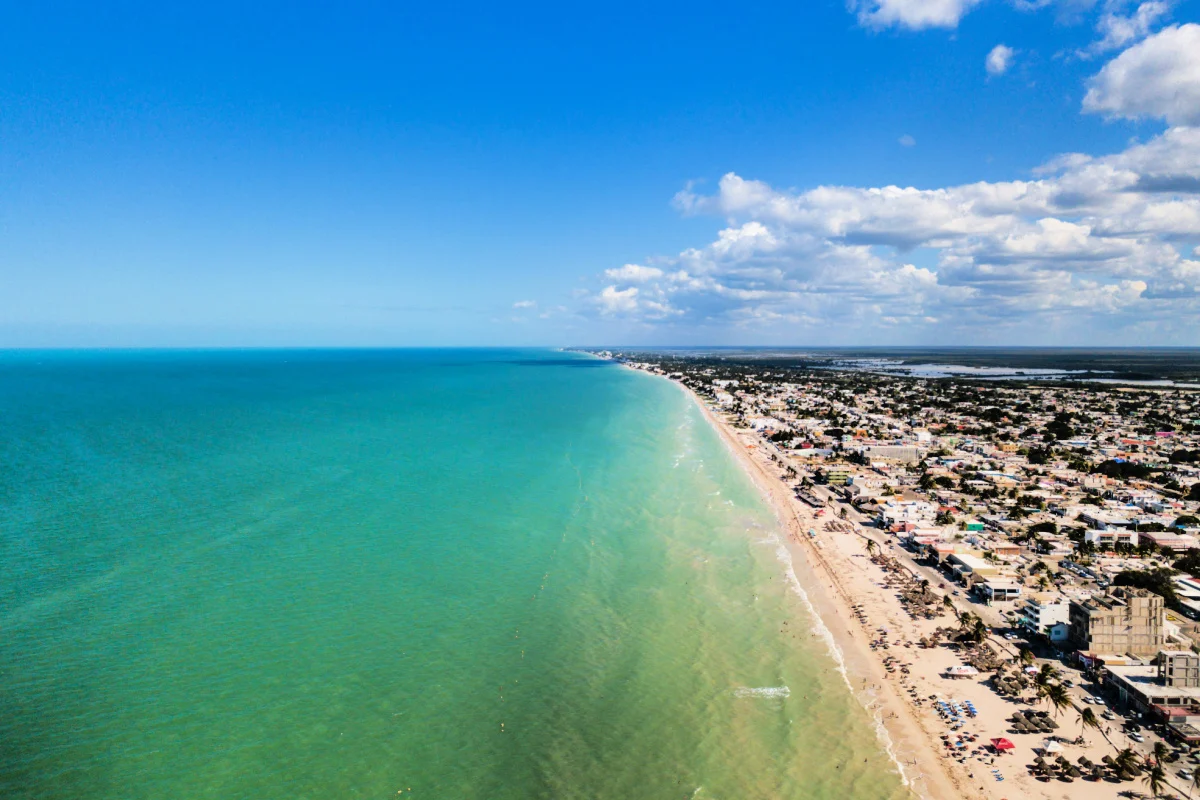
They have now issued a yellow flag warning on Progresso Beach and the surrounding areas due to the arrival of the specimens that have begun washing up on the shore.
Why The Yellow Flag Warning?
Beaches adopt flag warnings whenever there are potential dangers to tourists in any given area.
In most cases, beaches usually have flag warnings regarding waves and/or undercurrents, which lifeguards want tourists to be wary of.
Green flags mean there is no threat to tourists, yellow means there is moderate threat, and red/black generally means that the sea is not safe to swim in and could be potentially closed to all visitors.
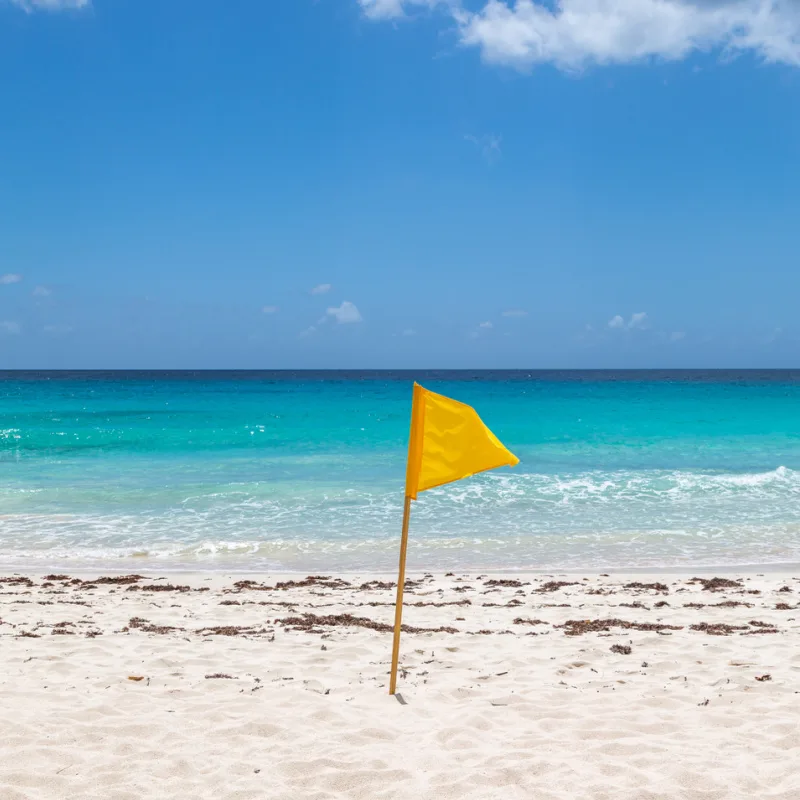
In this instance, the yellow flag was instated to make tourists exercise caution when entering the water of Progresso Beach, as the Portuguese Man o’ War may not be completely noticeable at first glance.
Over the weekend, officials collected about 60 specimens on the beach, which was enough cause for concern to raise the flag but not enough yet to issue a red one.
The Portuguese Man o’ War arrived on the beaches of Yucatan around the same time last year and caused several of them to close, with officials collecting upwards of 500/600 species a day!
Though they will eventually pass and move onto another part of the coastline when the current takes them, there is still time for a red flag warning to be enforced if more specimens are collected on the shore.
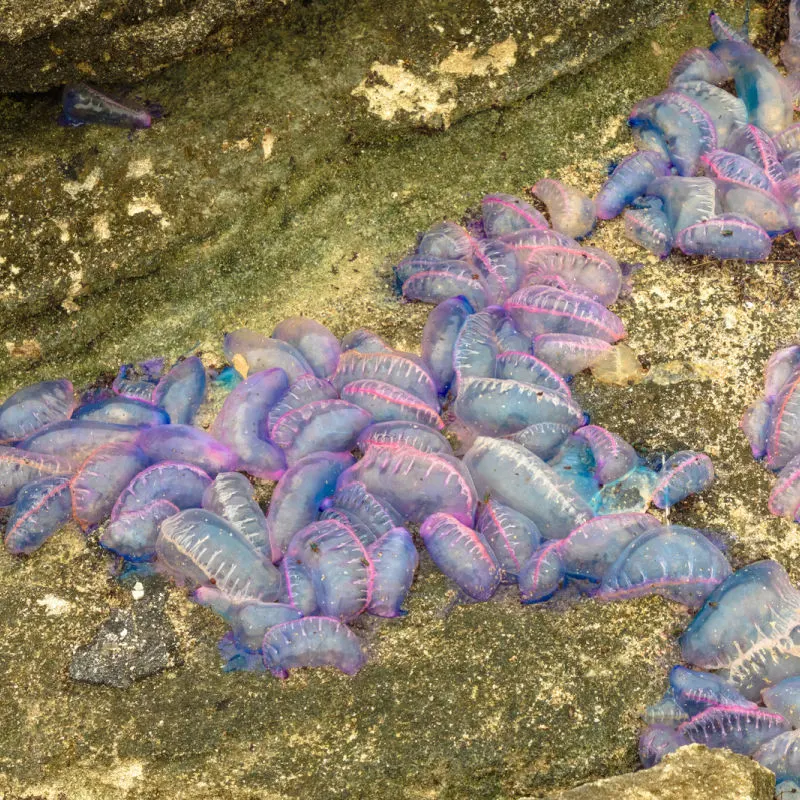
Can They Hurt Me?
In short, yes.
The Physalis Physalis, which is the scientific name for the species, is about 30 centimeters long and match the color of the water, making them slightly tricky to spot.
They are arriving due to the recent cold fronts that have affected the Yucatan Peninsula and are moving with the current in search of somewhere warmer to swim (aren’t we all at this time of year?).
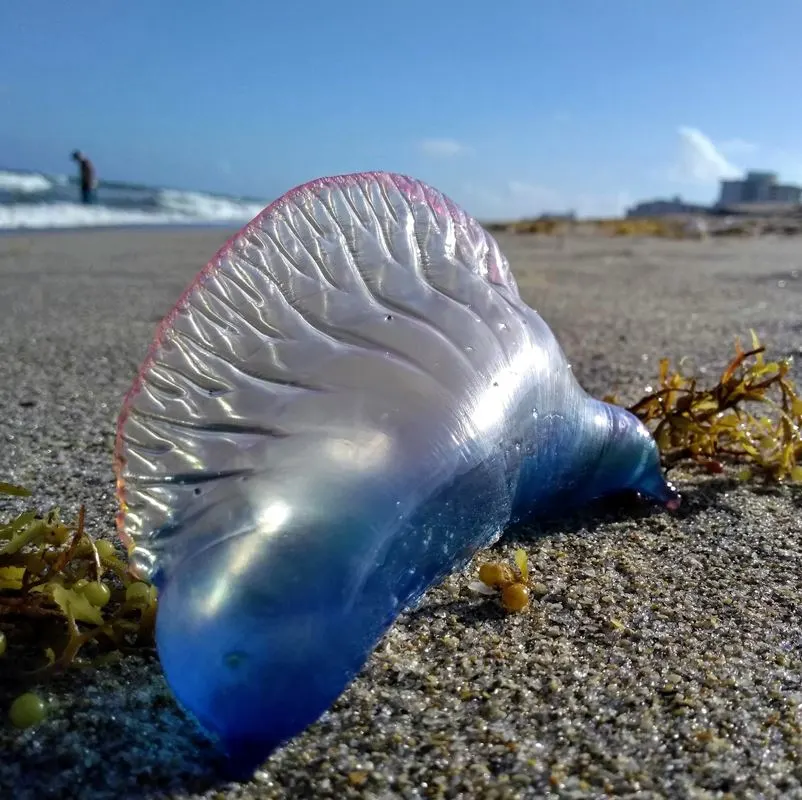
The poison of Portuguese Man o’ War can be extremely painful if it comes in contact with your skin, but in most cases, it won’t need more attention than some basic medical care.
Hopefully, the pain subsides within twenty minutes or so and will leave behind a red welt in your skin for only a few days.
It is worth noting, however, that some people who come in contact with the poison will feel nauseous or have trouble breathing, and in the most extreme cases, could cause cardiac arrest.
The best advice is not to panic and find a lifeguard who will be able to give you proper medical attention and get you to a nearby doctor or hospital if you need it.
Under no circumstances should tourists come into contact with the Portuguese Man o’ War if they are on the shore.
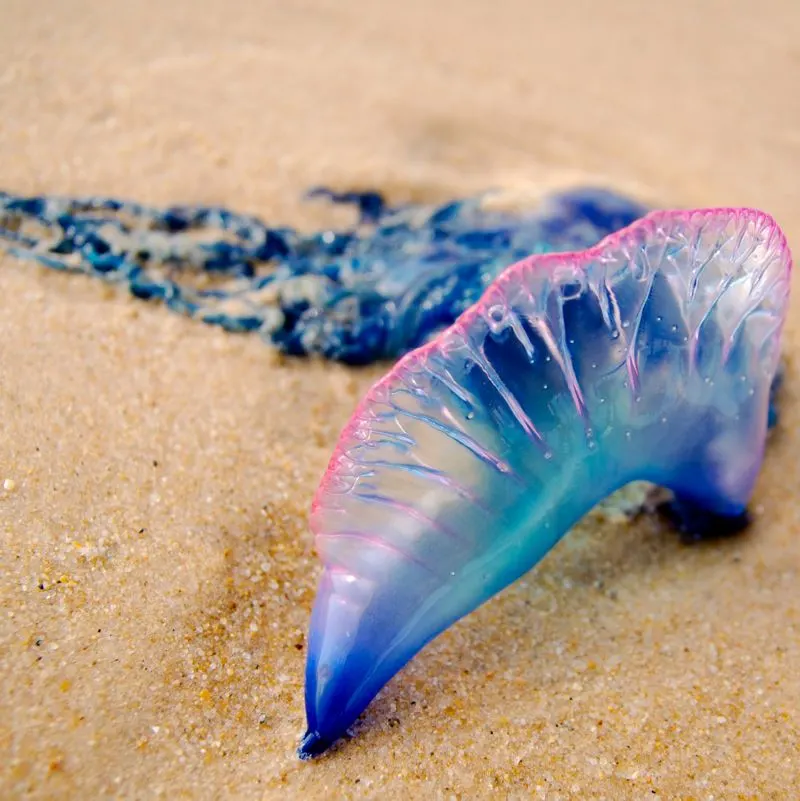
Though the specimens will be dead, they can still carry poison for a few days and will be just as painful as if you come into contact with them in the water.
In most cases, however, the risk is low, and the most you are going to feel is a painful sting for a while.
Why Not Try Swimming In A Cenote Instead?
If you just want to skip the possibility of a nasty jellyfish sting altogether, the region is host to a whole load of cenotes, which are naturally formed sinkholes that offer the perfect alternative.
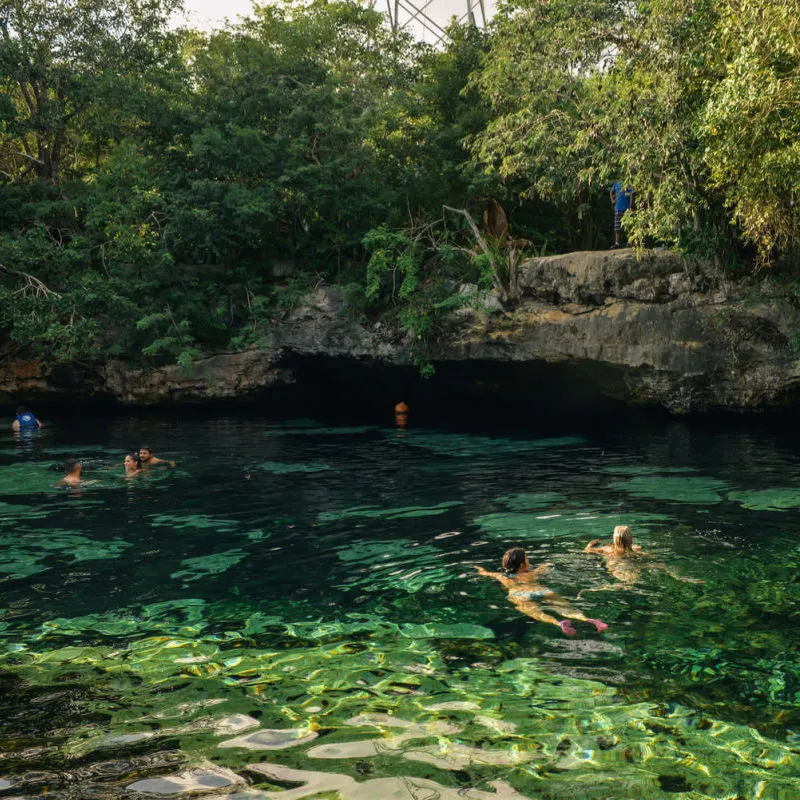
Dating back to ancient Mayan times, these sinkholes were once used as sacrificial and religious sites and were believed to have been the ‘gateway to the underworld.’
Today, they are the perfect place to have a swim and escape the hot Mexican sun, with many of them offering scenic beauty that is unmatched when compared to other places in the world.
Near Progresso Beach and the ‘magical town’ of Merida, you have the options of Cenotes Hacienda Mucuyche, Cenote X’Batun, Cenote Dzonbakal, and many, many more.
Trust us, they certainly won’t disappoint, and they certainly won’t have any Portuguese Man o’ War’s lurking in them…
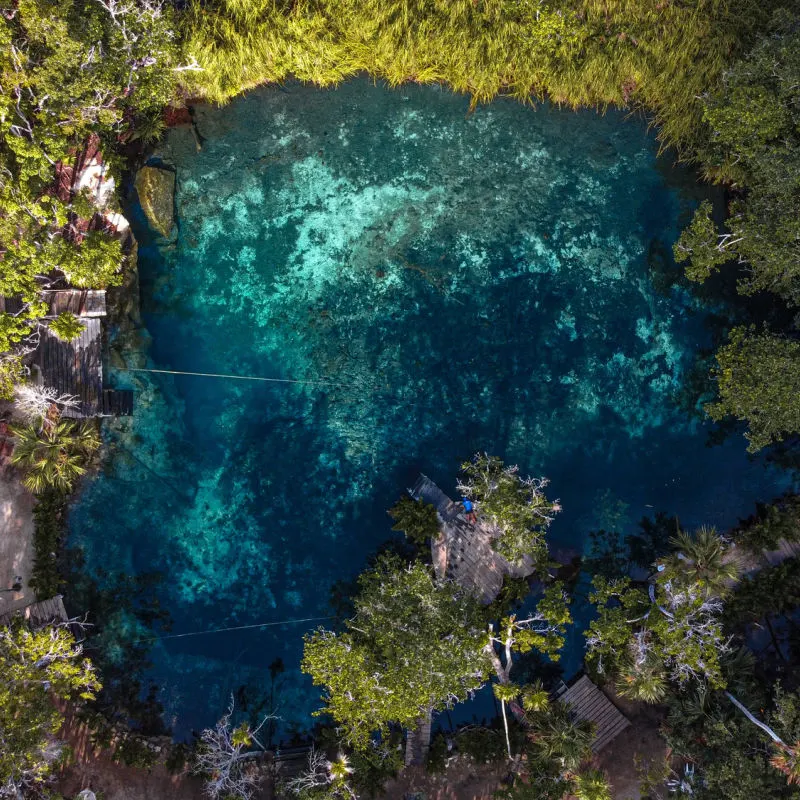
Plan Your Next Cancun Vacation:
Traveler Alert: Don’t Forget Travel Insurance For Your Next Trip!
Choose From Thousands of Cancun and Riviera Maya Hotels, Resorts and Hostels with Free Cancellation On Most Properties
↓ Join the community ↓
The Cancun Sun Community FB group has all the latest travel news, conversations and tourism Q&A’s for the Mexican Caribbean

Subscribe to our Latest Posts
Enter your email address to subscribe to The Cancun Sun’s latest breaking news affecting travelers, straight to your inbox.
